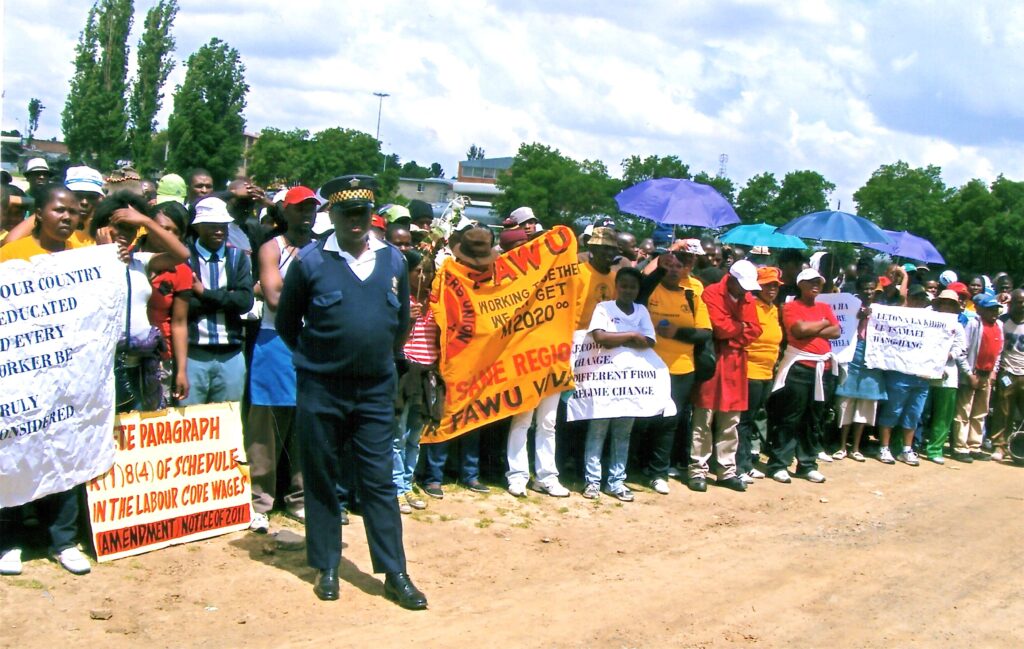1 November, 2012Not accepting delays in the gazetting of minimum wages in Lesotho, 1,000 garment workers marched to the Prime Minister’s office on Monday 29 October 2012 to demand a living wage.
Workers are frustrated because government has failed to give a reason for the delay in gazetting minimum wages in Lesotho, which were to be effective from 1 October 2012. Trade unionist, Daniel Mariasane says that initially government wanted to exclude the garment sector from the minimum wage gazette, so it is probable that resistance from employers to increase the wage is causing the delay.
At a tripartite workshop organized jointly by the International Labour Organization (ILO) and the Minister of Labour and Employment in February 2012, parties agreed on eight criteria that should be considered by the Wages Advisory Board when setting minimum wages for the garment sector, one of which is a living wage.
A detailed study was then conducted by an independent ILO consultant on what a living wage would be for garment workers in Lesotho, which concluded that workers needed M1,415 (Euro 141) to subsist and M2148 ( Euro 214) to meet basic needs.
These finding vindicate garment workers that had demanded a living wage of M2,020 (Euro 202) a month in protests during 2011. Mariasane reports that a study was also conducted by the Central Bank of Lesotho that suggested R1,396 (Euro 140) as the minimum wage for the sector.
“Employers want workers to accept an 8 per cent increase on a minimum wage of 83 Euro, this is less than 10 Euro increase,” says Mariasane. We want the minimum wage in the sector to be reviewed in line with the ILO commissioned study and the findings of the Central Bank.”
Other demands that workers took to the Prime Minister are that minimum wages must apply to all workers not only those with more than 12 month service, an end to discrimination of garment workers that only receive 2 weeks maternity leave whilst all other workers in Lesotho are entitled to 6 weeks and that a sector level bargaining council must be established to establish the right to strike on wage issues.
The Prime Minister received the demands and has promised to give the matters urgent attention.






